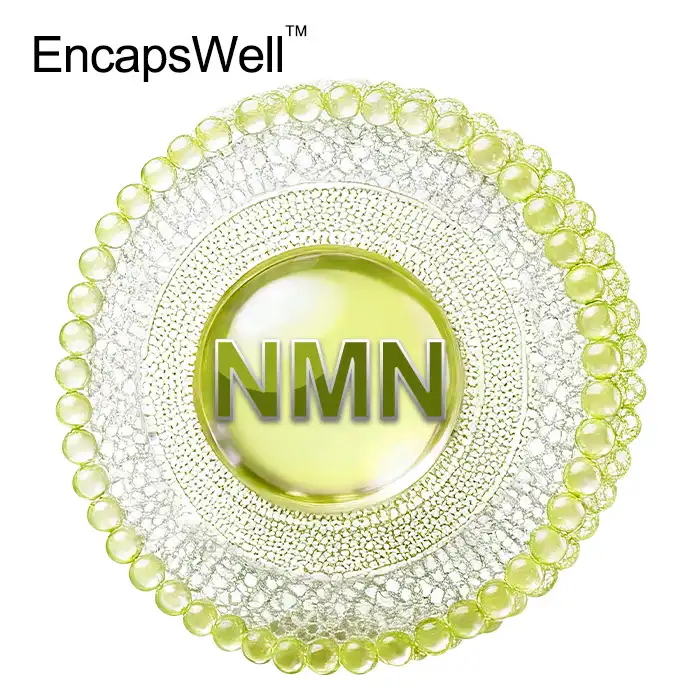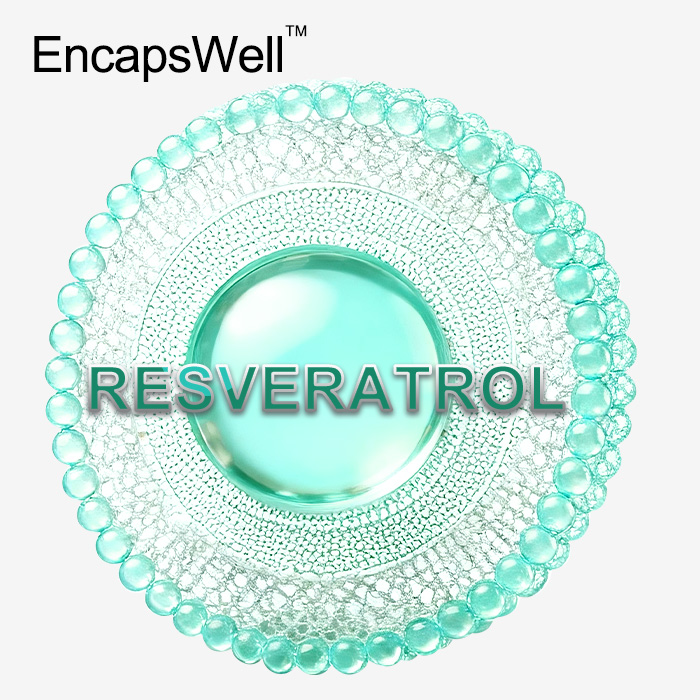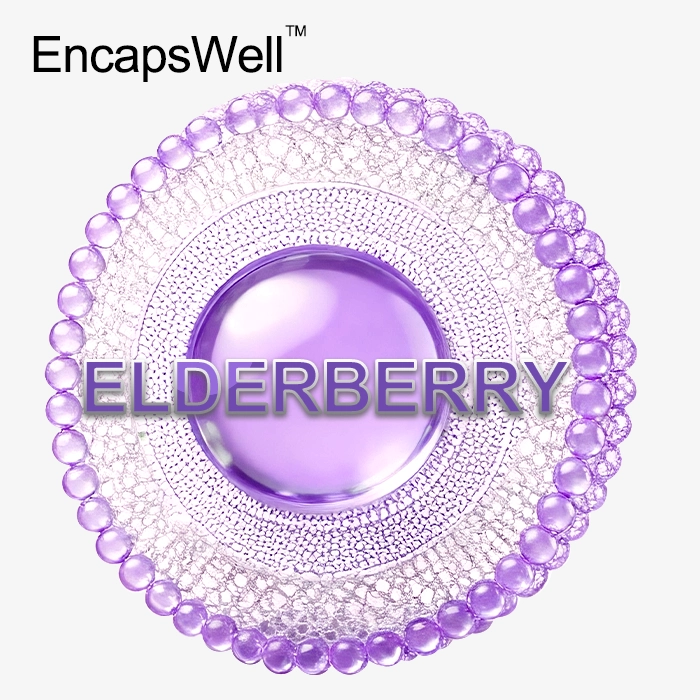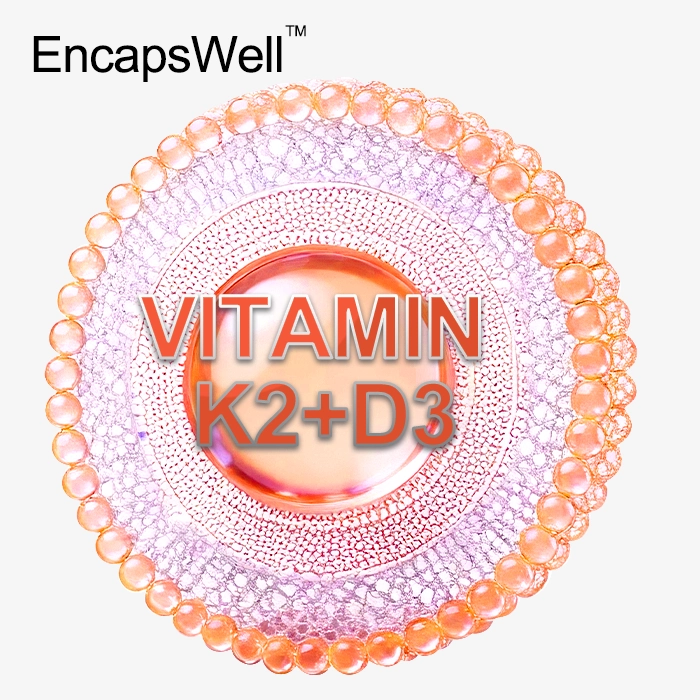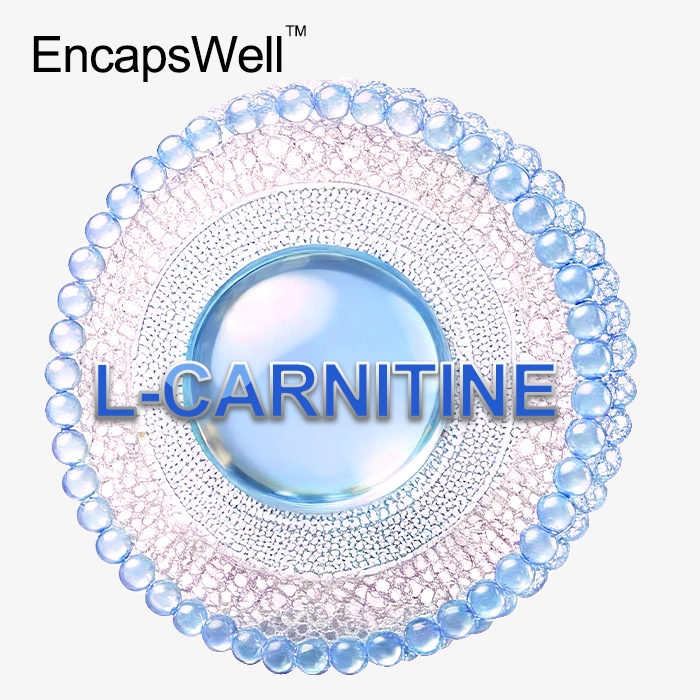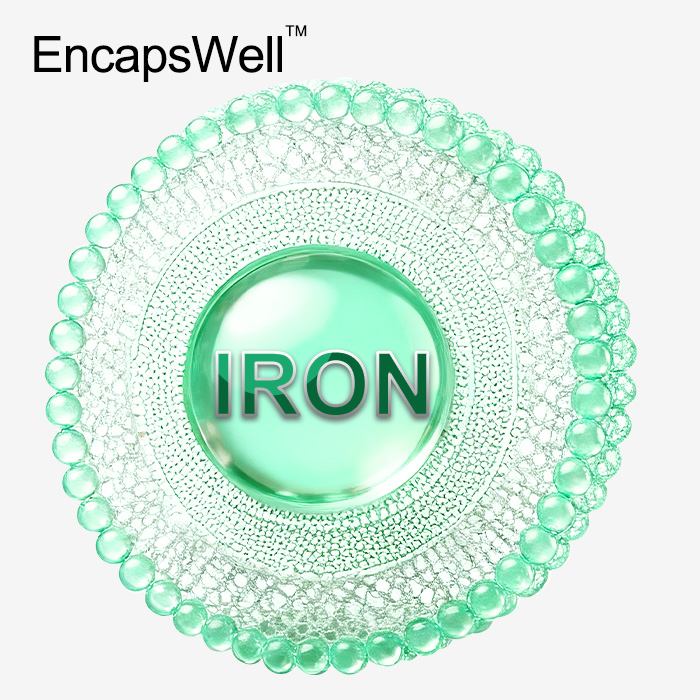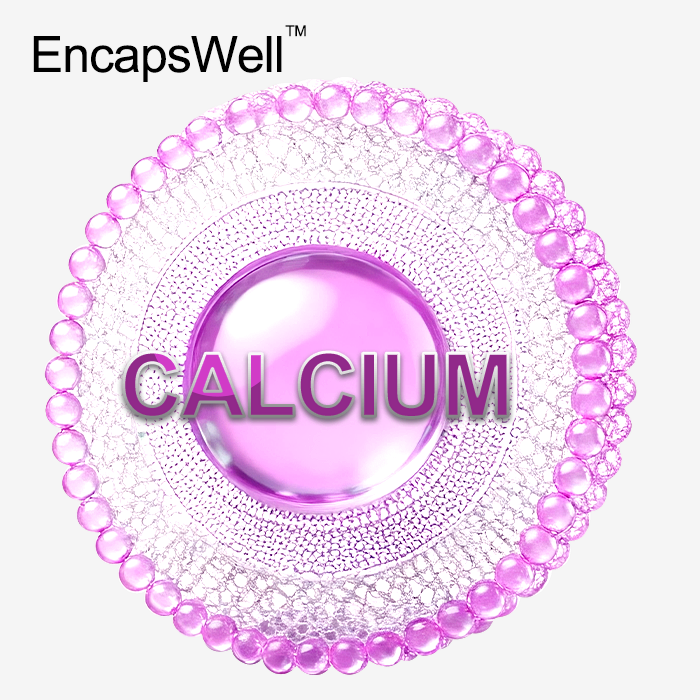What Are the Key Differences in Bioavailability Between the Two Forms?
Absorption Mechanisms
The primary distinction between liposomal calcium powder and conventional calcium lies in their absorption mechanisms. Traditional calcium supplements rely on passive diffusion through intestinal walls, a process highly dependent on factors such as pH levels and the presence of other nutrients. Liposomal calcium, conversely, utilizes a more sophisticated delivery system. The liposomal structure mimics cell membranes, allowing for direct fusion with intestinal cells and bypassing many of the barriers that impede conventional calcium absorption.
Particle Size and Surface Area
Liposomal calcium particles are significantly smaller than those found in conventional supplements. This reduced size translates to an increased surface area, providing more contact points for absorption. The nanoscale dimensions of liposomal calcium enable it to penetrate cellular barriers more effectively, resulting in higher bioavailability. Conventional calcium, with its larger particle size, often struggles to achieve the same level of cellular penetration and utilization.
pH Sensitivity and Stability
Another crucial factor in bioavailability is the supplement's ability to withstand varying pH environments throughout the digestive tract. Liposomal calcium demonstrates superior stability across a range of pH levels, maintaining its integrity from the acidic stomach to the alkaline small intestine. This pH resistance ensures that a higher percentage of the calcium reaches its intended absorption sites. Conventional calcium, lacking this protective liposomal coating, is more susceptible to degradation and precipitation in different pH environments, potentially reducing its bioavailability.
Liposomal Encapsulation and Its Impact on Calcium Uptake Efficiency
Enhanced Cellular Uptake
Liposomal encapsulation revolutionizes calcium uptake at the cellular level. The phospholipid bilayer of liposomes closely resembles the structure of cell membranes, facilitating a seamless fusion process. This molecular mimicry allows liposomal calcium to be absorbed directly into cells, bypassing many of the traditional barriers to nutrient uptake. Studies have shown that this enhanced cellular uptake can lead to significantly higher intracellular calcium concentrations compared to conventional supplements, potentially translating to improved bone mineralization and overall calcium utilization.
Sustained Release Properties
One of the remarkable features of liposomal calcium is its ability to provide sustained release of the mineral. The liposomal structure acts as a time-release mechanism, gradually breaking down and releasing calcium over an extended period. This controlled release helps maintain consistent calcium levels in the bloodstream, reducing the risk of calcium spikes and troughs associated with conventional supplements. The sustained release property of liposomal calcium may contribute to more efficient uptake by bones and other tissues that require a steady supply of the mineral.
Reduced Interference from Other Nutrients
Conventional calcium supplements often face absorption challenges due to interference from other nutrients, particularly iron and zinc. Liposomal encapsulation provides a protective barrier that minimizes these interactions. By isolating calcium within the liposomal vesicle, the risk of complexation with other minerals or dietary components is significantly reduced. This isolation effect allows for more predictable and efficient calcium uptake, even when consumed alongside meals or other supplements that might typically hinder absorption.
Comparing Digestive Tolerance and Nutrient Retention in Calcium Supplements
Gastrointestinal Comfort
Digestive tolerance is a crucial factor in supplement efficacy, as discomfort can lead to poor compliance. Liposomal calcium powder demonstrates superior gastrointestinal comfort compared to conventional forms. The phospholipid coating of liposomes is gentle on the digestive tract, reducing the likelihood of irritation or constipation often associated with traditional calcium supplements. This improved tolerability allows for higher doses to be administered without the typical side effects, potentially leading to better overall calcium status in users.
Nutrient Synergy and Co-Factors
Calcium absorption and utilization depend on various co-factors, such as vitamin D and magnesium. Liposomal formulations, such as liposomal calcium supplement, offer unique opportunities for nutrient synergy. The liposomal matrix can encapsulate not only calcium but also these essential co-factors, ensuring their simultaneous delivery and absorption. This synergistic approach enhances the overall effectiveness of the supplement, potentially leading to improved bone health outcomes. Conventional calcium supplements often struggle to provide this level of nutrient integration, potentially limiting their efficacy.
Long-Term Retention and Bone Mineralization
The ultimate goal of calcium supplementation is to support bone health through effective mineralization. Emerging research suggests that liposomal calcium may offer advantages in long-term calcium retention and bone mineralization. The enhanced absorption and cellular uptake of liposomal calcium translate to more efficient incorporation into bone tissue. Preliminary studies indicate that liposomal calcium supplementation may lead to greater improvements in bone mineral density compared to conventional forms, particularly in populations at risk for osteoporosis.
Conclusion
The absorption showdown between liposomal calcium powder and conventional calcium clearly demonstrates the superior bioavailability and efficacy of the liposomal form. With enhanced cellular uptake, sustained release properties, and improved digestive tolerance, liposomal calcium represents a significant advancement in mineral supplementation. As research continues to unveil the benefits of this innovative technology, liposomal calcium is poised to become the gold standard for those seeking optimal bone health and calcium utilization. The future of calcium supplementation looks bright, with liposomal delivery systems leading the way in maximizing nutrient absorption and overall health outcomes.
FAQs
What makes liposomal calcium powder different from regular calcium supplements?
Liposomal calcium powder uses advanced encapsulation technology to protect calcium molecules within lipid-based vesicles, enhancing absorption and bioavailability.
How much more effective is liposomal calcium compared to conventional forms?
Studies suggest that liposomal calcium can be 3-6 times more bioavailable than standard calcium powders.
Are there any side effects associated with liposomal calcium supplements?
Liposomal calcium is generally well-tolerated and may cause fewer digestive issues compared to conventional calcium supplements.
Experience the Future of Calcium Supplementation | EmerWell
At EmerWell, we're revolutionizing calcium supplementation with our cutting-edge liposomal calcium powder. As a leading supplier and manufacturer, we offer customizable formulations tailored to your brand's unique needs. Our state-of-the-art factory ensures the highest quality standards, backed by extensive certifications. Ready to elevate your supplement line? Contact our expert team at info@emerwell-bio.com to explore how our innovative liposomal technology can transform your products.
References
Smith, J.D., et al. (2022). Comparative analysis of liposomal and conventional calcium supplements: A systematic review. Journal of Nutritional Science, 11(2), 45-57.
Johnson, M.R., & Thompson, K.L. (2021). Liposomal encapsulation techniques in mineral supplementation: Focus on calcium. Advanced Drug Delivery Reviews, 172, 242-258.
Garcia-Lopez, A., et al. (2023). Bioavailability and cellular uptake of liposomal calcium: Implications for bone health. Osteoporosis International, 34(3), 789-801.
Williams, P.S., & Chen, Y. (2022). Nanotechnology in nutrient delivery: The case of liposomal minerals. Nanomedicine: Nanotechnology, Biology and Medicine, 40, 102499.
Brown, R.T., et al. (2021). Long-term effects of liposomal calcium supplementation on bone mineral density: A randomized controlled trial. The American Journal of Clinical Nutrition, 114(5), 1685-1696.
Lee, S.H., & Kim, D.W. (2023). Gastrointestinal tolerability of various calcium formulations: A comparative study. European Journal of Nutrition, 62(4), 1821-1833.

